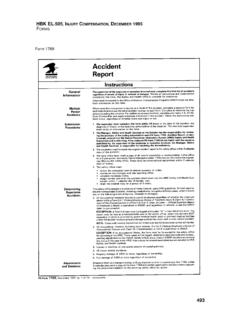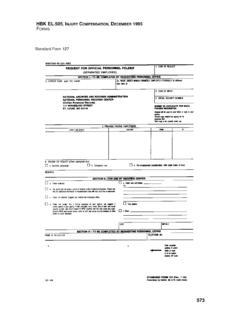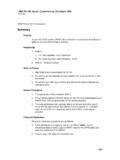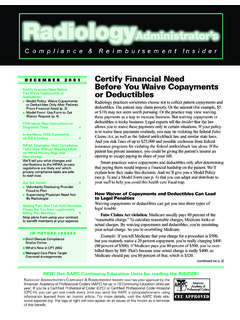Transcription of A Plan for the Implementation of Enterprise …
1 A Plan for the Implementation of Enterprise resource planning (ERP) for the State of TexasTe x a s en T e r p r i s e re s o u r c e pl a n n i n ge r p ad v i s o r y co u n c i l su s a n co m b s, co u n c i l co o r d i n aT o rDe c e m b e r 15, 2008 Susan Combs Texas Comptroller of Public AccountsERPP repared byThe ERP Advisory Council(As established by House Bill 3106)Te x a s en T e r p r i s e re s o u r c e pl a n n i n gSusan Combs, Council Coordinator & Comptroller of Public AccountsERP Advisory Council MembersGary GibbsVictor GonzalezRamesh KannappanScott KelleyDustin LanierAnna Presley-BurnhamBrian RawsonKay RhodesGordon TaylorRon WeissSuzy WhittentonKenny Zajicek December 15, 2008 The Honorable Rick PerryThe Honorable Tom CraddickThe Honorable David DewhurstMembers of the 81st Texas LegislatureLadies and Gentlemen:In accordance with House Bill 3106 of the 80th Texas Legislature, the Enterprise resource planning Advisory Council is pleased to submit A Plan for the Implementation of Enterprise resource planning (ERP) for the State of has been our pleasure to work together on this very important project and work with the ERP project team.
2 We are grateful for the time, energy and expertise state agency and higher education staff have devoted to this imperative effort to closely study our state information enclosed report represents many months of effort between state agencies and institutions of higher education in an unprecedented collaboration. ERP Advisory Council meetings began in February 2008 and were held throughout the year. In addition, five key ERP workgroups and a CIO/CFO committee were launched to meet and delve deeper into more complex discussions. Meeting agendas, minutes, materials and workgroup/committee descriptions are available on our ERP project Web site at As you know, ERP is simple in theory but extremely complex in practice. But the benefits it may offer are critical. To preface the findings presented in our report, A Plan for the Implementation of Enterprise resource planning (ERP), we first offer the attached quick overview.
3 We have evaluated this plan as it relates to each of our respective interests and needs, and conclude that it creates an integrated and workable platform that will provide the desired reporting uniformity across state agencies and institutions of higher support this plan and believe it is our state s best interest to consider its Implementation . We look forward to addressing any questions or comments that you may ,Te x a s en T e r p r i s e re s o u r c e pl a n n i n gSusan Combs Texas Comptroller of Public Accounts De c e m b e r 15, 20084 Victor GonzalezDirector of Innovation and Technology Texas Comptroller of Public AccountsSuzy WhittentonDirector of Fiscal Management Texas Comptroller of Public AccountsDustin LanierDirector, Council of Competitive Government Texas Council on Competitive GovernmentBrian RawsonExecutive Director Texas Department of Information ResourcesAnna Presley-BurnhamProgram Manager Texas Department of Information ResourcesRon WeissDirector.
4 Enterprise Support Systems Texas Health and Human Services CommissionGordon TaylorChief Financial Officer Department of Aging and Disability Services Texas Health and Human Services Commission RepresentativeRamesh KannappanProject Director, Enterprise Information Systems Texas A & M University SystemScott KelleyExecutive Vice Chancellor for Business Affairs University of Texas SystemKay RhodesAssociate Vice Chancellor and System Chief Information Officer Texas Tech University SystemGary GibbsExecutive Director Texas Commission on the ArtsKenny ZajicekFiscal Officer Texas State Soil and Water Conservation BoardState Agency Chief Executive Officers (excluding those listed above as council members)We support the work conducted by the council and believe that the recommendations related to our respec-tive state agencies are HawkinsExecutive Commissioner Texas Health and Human Services CommissionRex IsomExecutive Director Texas State Soil and Water Conservation BoardERP Ad v i s oR y Co u nC i l ME Mb E RsSusan CombsCouncil Coordinator & Comptroller of Public AccountsMartin HubertDeputy Comptroller Texas Comptroller of Public AccountsTe x a s en T e r p r i s e re s o u r c e pl a n n i n g5 Susan Combs Texas Comptroller of Public Accounts De c e m b e r 15, 2008We want to thank Comptroller Combs for her leadership on this important issue and for the opportunity she has afforded higher education to participate in the process.
5 We are supportive of the work conducted by the Council and believe that the recommendations related to higher education are t tE R f R o M un i vE Rs i t y Ch A n C El l oR sKenneth I. Shine, ad interim The University of Texas SystemMichael D. McKinney, Texas A&M University SystemKent HanceChancellor Texas Tech University SystemTe x a s en T e r p r i s e re s o u r c e pl a n n i n gSusan Combs Texas Comptroller of Public Accounts De c e m b e r 15, 20086Te x a s en T e r p r i s e re s o u r c e pl a n n i n g7 Susan Combs Texas Comptroller of Public Accounts De c e m b e r 15, 2008A Qu iC k ov E Rv iE wERP: A Single Set of Books Enterprise resource planning is a business/technology term for an information system based on a common database and common software tools that allow real-time informa-tion to be accessed, shared and compared easily and immediately across organiza-tions, agencies, divisions or departments.
6 For Texas state agencies and institutions of higher education, ERP would provide a single set of books for financial and hu-man resources-related transactions. ERP uses a single language for financial data. At present, state agencies and institu-tions of higher employ multiple financial data languages. A successful ERP system would ultimately provide the tools needed to shine the brightest light on the state s finances; give decision-makers seamless access to state data; and allow the state to make better use of the data at its fingertips. The ERP Advisory Council House Bill 3106, passed in the 2007 legislative session, called for the formation of the ERP Advisory Council under the leadership of the Comptroller s office, based on: a desire for transparency in state government. the need for state agencies and institu-tions of higher education to speak the same language while compiling and comparing data.
7 Under House Bill 3106, the council s tasks include: providing a clear definition and scope of ERP for Texas. initiate statewide planning for ERP with participants representing both state agen-cies and institutions of higher education. researching and developing a plan for implementing a single set of state books. providing a progress report each bien-nium on the plan s Pl A n f oR t hE iM Pl E M En tA t i o n o f En tE R P Ri sE RE s o uR C E Pl A n n i n g (ERP)Te x a s en T e r p r i s e re s o u r c e pl a n n i n gSusan Combs Texas Comptroller of Public Accounts De c e m b e r 15, 20088 Benefits of a Single Set of Books A successful ERP system will: give state decision-makers a single source for reliable, real-time information that can be compared across agencies. provide easy, direct access to the state s vast array of financial and human resources information.
8 Eliminate data conflicts often encountered when using financial accounting programs that do not interconnect or when double sets of books are kept and cannot be reconciled. provide better tracking and standardization of financial information, such as: method of finance the state could identify the funding source used to pay for any good or service ( , appropriated receipts, federal funds, grants, interagen-cy contracts, etc.). appropriations/budgets/expenditures every state dollar could be tracked from the initial appropriation to a state agency budget and ending with the final expenditure. state assets and budget planning state assets could be tracked to improve bud-get planning and accountability. real-time transparency would allow the Legislature and citizens to follow each dollar and know how agencies and institutions are spending the funds they receive throughout the year.
9 Allow its users to estimate carry-forward or lapsing federal funds or grants. This is a difficult and problematic exercise at the statewide level today. With an ERP system, decision-makers could track and monitor expected federal receipts and compare them against actual usage across agencies and institutions of higher Problems The greatest justifications for a statewide ERP system are the shortcomings of existing state-wide administrative systems and the work-arounds required by user agencies to address these deficiencies: Texas ID Number System (TINS) a 19-year-old state-developed system that could break down, creating a situa-tion in which the state would be unable to write checks or send direct deposit funds to vendors. the current system does not provide a fail-proof method to identify all vendors who owe money to the state and there-fore should not be receiving payments from the state.
10 State Property Accounting (SPA) this 15-year-old state-developed system was built as an inventory system and does not support accounting standards enacted since its inception. It requires time-consuming, expensive and inefficient manual reconciliation and reworking. the State Auditor s Office has expressed concern that SPA s internal controls to maintain the integrity of transaction data are inadequate. Audit findings may affect the state s bond x a s en T e r p r i s e re s o u r c e pl a n n i n g9 Susan Combs Texas Comptroller of Public Accounts De c e m b e r 15, 2008 Payroll Systems (SPRS, HRIS, USPS) state agencies and institutions employ more than 20 human resources/payroll systems and three statewide payroll and personnel reporting systems, the oldest of which is 19 years old. The payroll/person-nel systems entail significant redundan-cies and could be consolidated to reduce the complexity of the reporting function and cut the cost of operating and main-taining the state s data platforms.








